Asustor AS4004T 4-Bay NAS Performance
When setting up the NAS, three different RAID setup options under 1-Click Setup, Maximum Capacity – RAID 0, Superior Data Protection – RAID 6, Balanced – RAID 5. We will run our tests under these three settings since we expect most users to pick one of those three. We are also using our 4TB WD Red hard drives as they are a common configuration option in this NAS segment.
We begin with 1 GbE network connections.
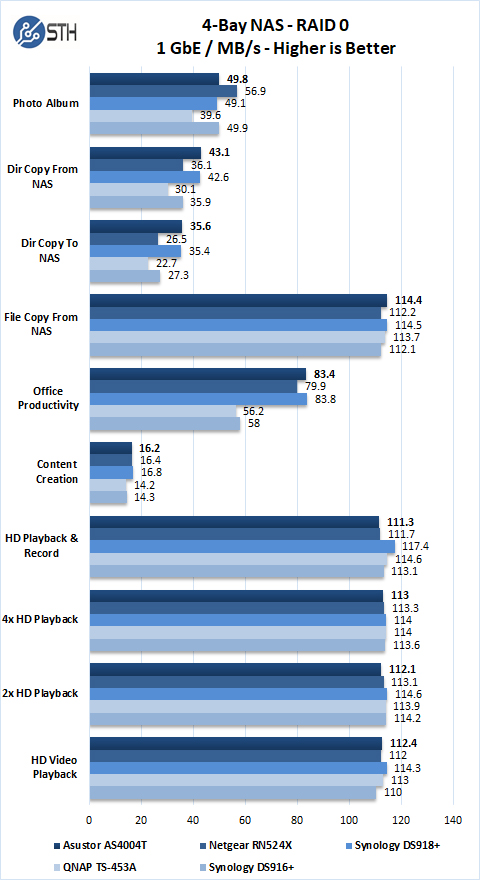
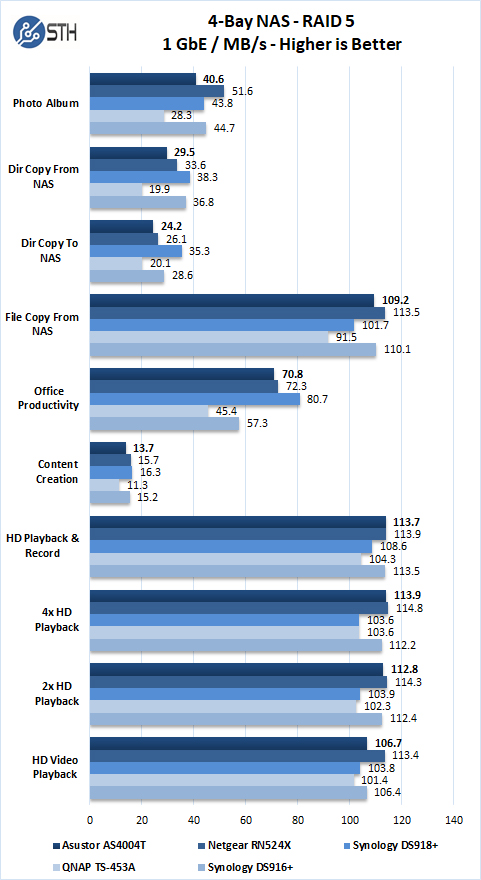
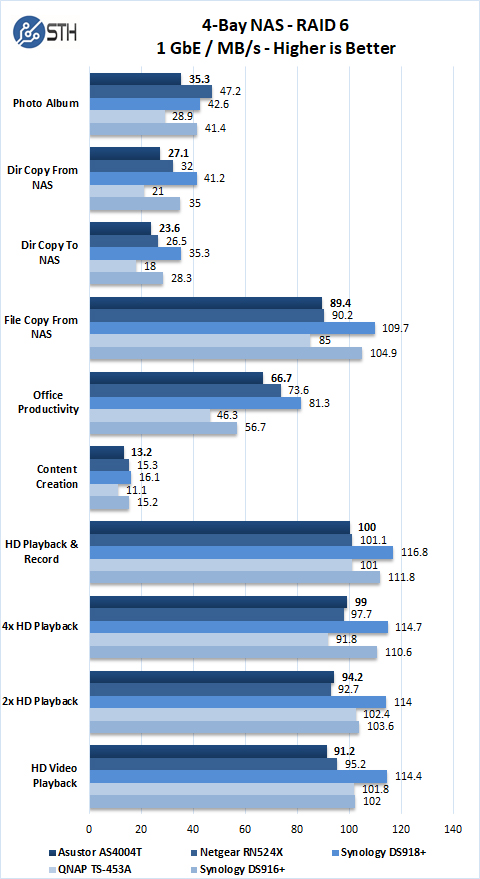
Our AS4004T NAS can saturate the 1 GbE connection without too much trouble as we would have expected. There is a noted impact of having RAID 6 enabled versus RAID 5 in a majority of tests.
Let us move to 1GbE Encrypted tests.
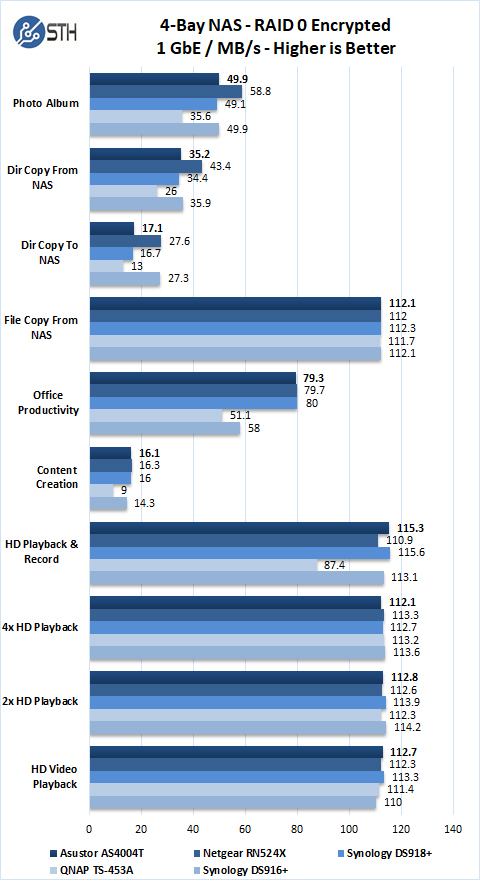
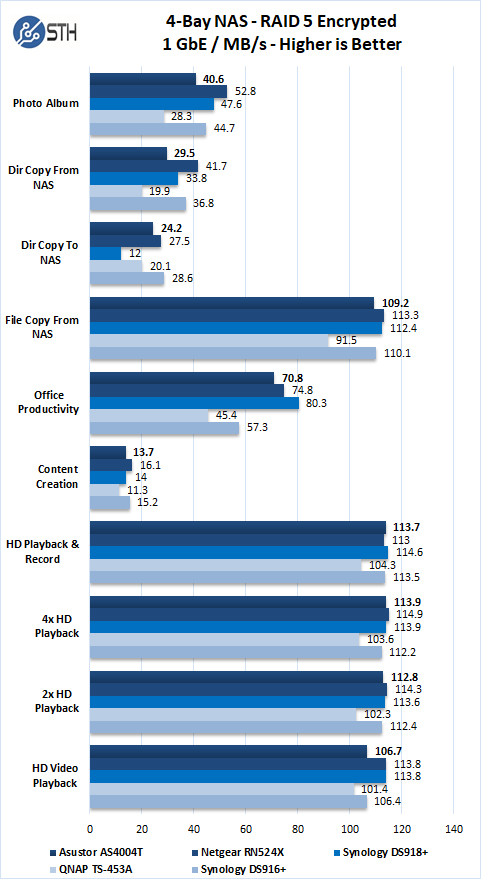
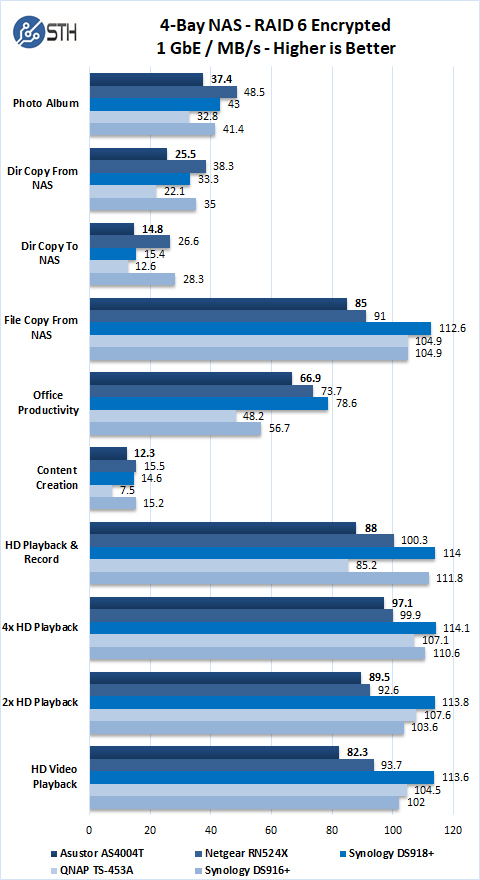
1GbE encrypted benchmarks perform very well compared to higher-end systems. The performance hit of adding encryption plus RAID 6 is very noticeable. In several cases, the penalty can be over 15%.
Let us move on to 10GbE testing.
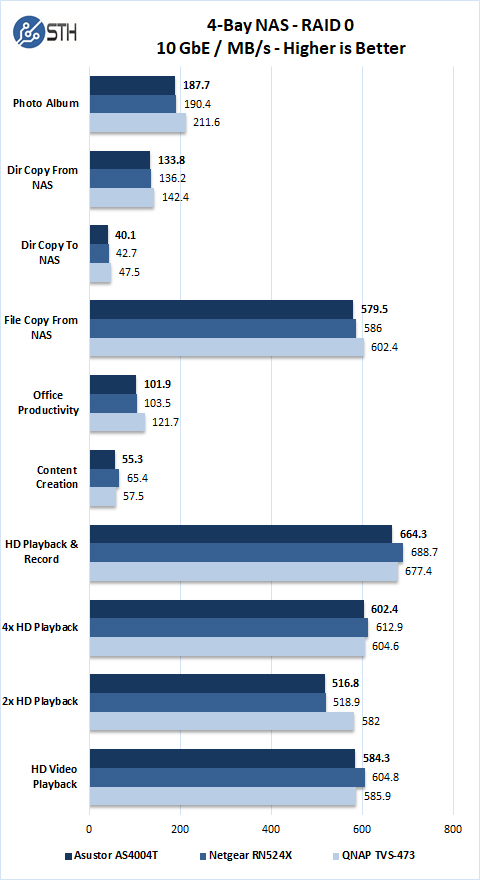
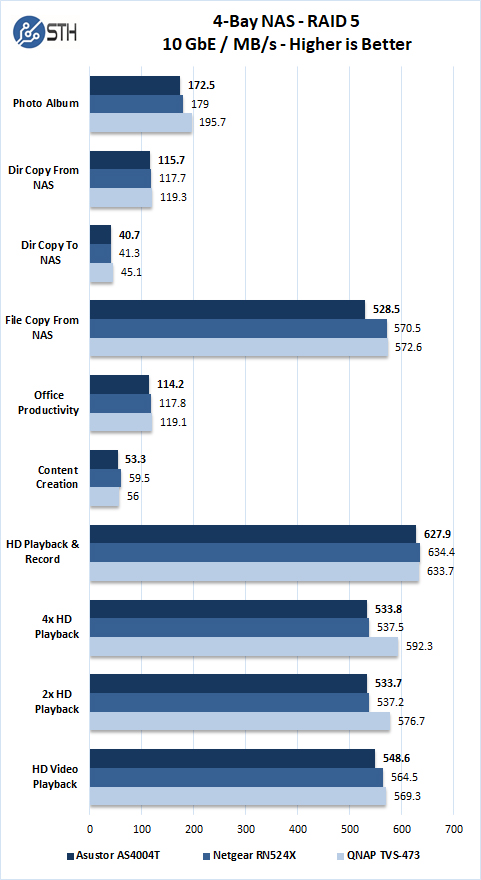
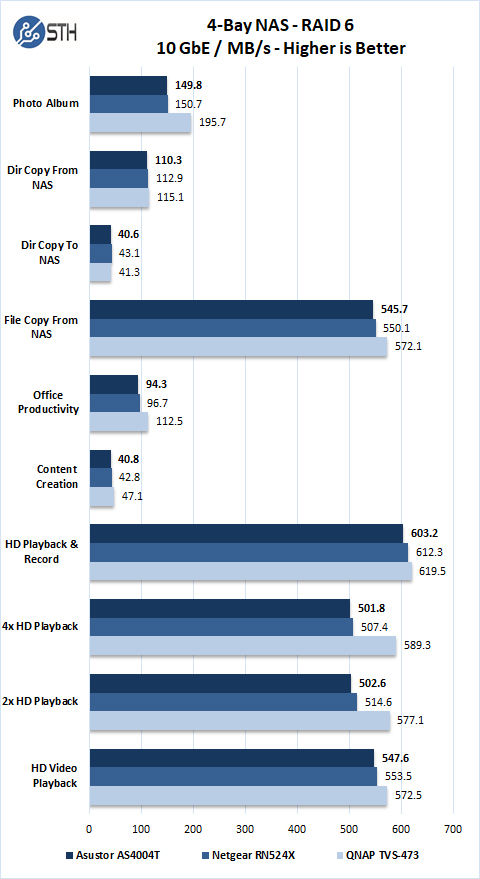
Here our 10GbE results show strong numbers for a NAS in the AS4004T’s price point. These tests show that even at the lower price point, one is still getting a major benefit from the 10GbE interface.
Now we see 10GbE Encrypted results.
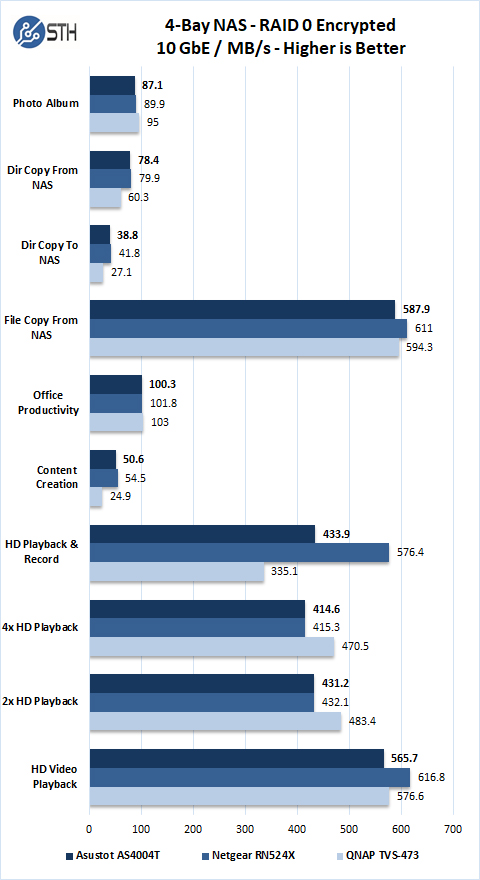
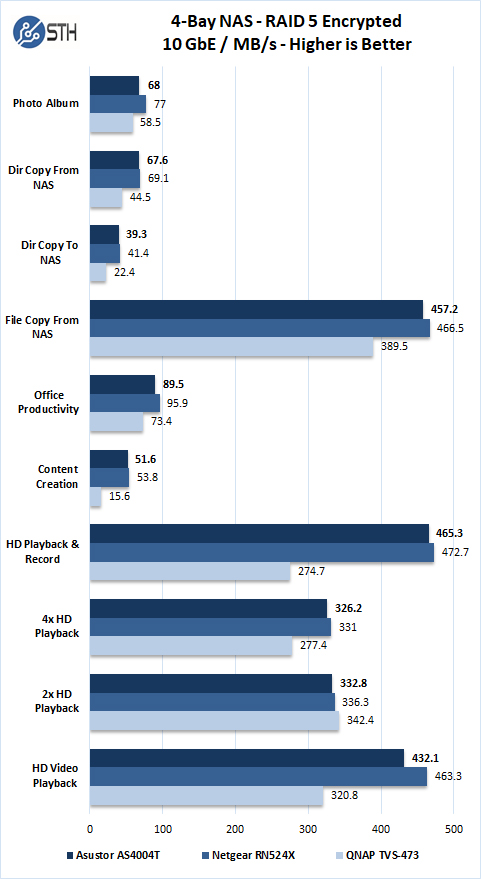
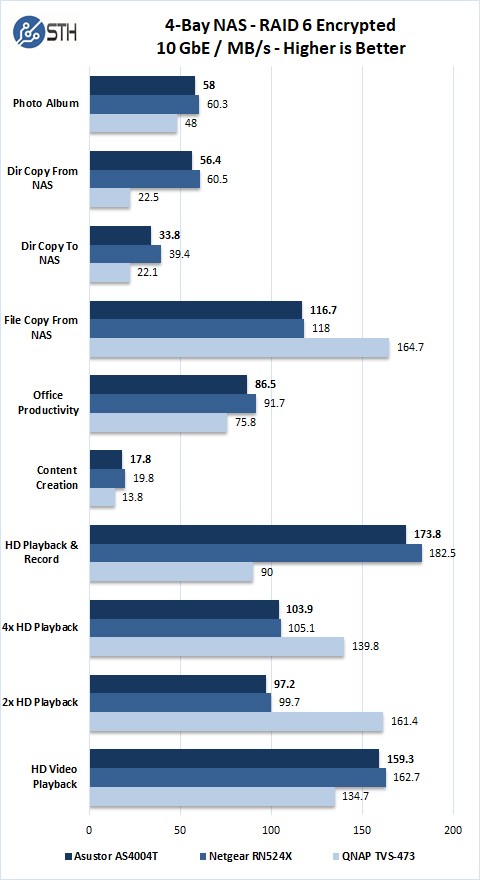
Looking at the 10GbE encrypted results, we again see good numbers compared to higher priced units. The addition of RAID 6 plus encryption shows fewer tests able to break 10GbE speeds. That should be a consideration regarding how you set this unit up.
Conclusion
The value proposition of the Asustor AS4004T is simple. It is a low-cost NAS that includes 10GbE. For a number of homes and small businesses that need faster than 1GbE performance but are on a very limited budget, the Asustor AS4004T is a great fit. The Netgear RN524X in our charts with similar performance costs about 90% more than the AS4004T. That is a big deal in this market segment.
We expect the Asustor AS4004T to have a major market impact. With a price around half of other low-cost 4-bay 10GbE enabled NAS units, the benefit is apparent. This unit does not claim to be the high-end virtualization solution that some other NAS units do, but that is fine. Sometimes you just need a 10GbE NAS and inexpensively. For STH’s SMB service provider readers, this may be something to look at for quoting to customers. If you can offer at 10GbE solution at a price where your competitors are offering a 1GbE solution, then that may help win bids.
The future is 10GbE in the SMB office and SOHO markets. Prices for NICs and switches have dropped dramatically to where this now makes a lot of sense. If you are purchasing a NAS today, you may want to future proof a bit buy looking at a 10GbE NAS like the Asustor AS4004T.

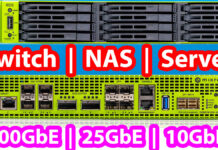
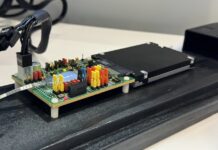
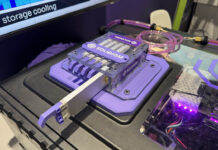
There is also a 2 bay version (Asustor AS4002T) on with 10GbE listed on Amazon for $100 less that also has JBOD, RAID 0, and RAID 1 support.
Why even bother having 10G network with such a low amount of memory? (not expandable) – I wouldn’t bother with it. Way better options out there.
Scott S there’s a sizable number of businesses that just want faster than 1Gb network speeds. RAM isn’t what I worry about. It’s that you’d need 8 drives to saturate 10Gb. But you can still go faster than 1Gb even using two drives.
Scott S: it’s simple – a NAS with a 10GbE connection, even if it can only dump 5-7Gbps of throughput, lets multiple workstation machines with 1GbE connections transfer files at full speed at the same time :)
Would be good to see some comparisons of various NAS boxes in this bracket in transfer speed etc. My main point is stuck with 2G seems to defeat the object. If you could have up to let’s say 32G or even 16G would be quite good.
I fail to see why you’re caught up on 2G RAM for this? The Dell EMC PowerVault ME4 that STH just posted specs on has 8GB of RAM for systems that start in the hundreds of TB of storage and 8 10Gb ethernet ports https://www.servethehome.com/new-dell-emc-powervault-me4-smb-storage-array/